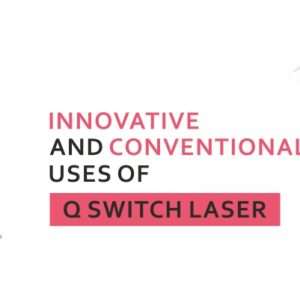When rising concerns over the country’s overburdened public healthcare system meet the growing emphasis on the role of entrepreneurship in achieving a self-sustaining and developed economy, it is medical entrepreneurship which guarantees the best of both worlds.
A large number of people have forayed into medical entrepreneurship with twin intentions of both earning profits as well as giving back to the society. This profession has gained tremendous popularity in India today.
Why most dermatologists are not great entrepreneur, how to act on this,
Today, thousands of business ventures are launched every year. Many never get off ground. Some grow at a slow pace, while others fizzle out after spectacular stat. Most of them start with a lot of enthusiasm and speed. But after a period of time, the organization stops growing.
Growth is not a monopoly of corporate only. Any dermatologist can and should visualize big picture. Goal should be bigger than life.
Generally, it is perceived that any doctor including Dermatologist cannot become good entrepreneur and second belief is entrepreneurship is to make more money what he is currently making.
However, this is just misconception as an individual Dermatologist becomes an entrepreneur to live an independent life where he no longer remains answerable to anybody. He is free to explore his creativity, work on his terms, create an empire of his dreams and leave a legacy in this world which will keep him eternally alive in the hearts of thousands of people and the independence to do all this comes through certain fundamental rights.

Every entrepreneur Dermatologist has certain rights that he/she possesses since the beginning of entrepreneurial journey till the time he leaves this world and these are known as the TEN ENTREPRENEURIAL RIGHT.
1) RIGHT TO DETRESS- Right to avoid all activities, relationships and circumstances that cause stress, anxiety and hostility and move from a world of distress to De-stress.
2) RIGHT TO MY TIME-Right to plan your time for yourself in a manner that is more productive and rejuvenating.
3) RIGHT TO WEALTH- Right to acquire the riches of the world for oneself, enterprise, associated people and entire echo-system by doing what you love to do and do best.
4) RIGHT TO FOCUS- Right to remain focused towards our most important goals, commitments, relationships and priorities amidst all the daily complexities taking place in our surroundings.
5) RIGHT TO STRATEGIES- Right to thoughtfully plan, schedule, execute activities and channelize all resources in a manner that you experience boundless growth
6) RIGHT TO ATTRACT- Right to attract the most lucrative relationships, resources, situations and alliances that will enhance the present status and lead to better future.
7) RIGHT TO THRIVE- Right to enjoy increased amounts of success, money and accomplishments without any guilt of having high aspirations and thereby thrive as a entrepreneur.
8) RIGHT FOR CAUSE- Right to go beyond yourself; live for a cause bigger than life and becomes the person you idealize.
9) RIGHT TO A BETTER TOMORROW-Right to visualize and work towards a better tomorrow
10) RIGHT FROM COMMODITIZATION -Right from commoditization by eliminating price war and yet winning business by creating value for every individual in each and every physical and intellectual intervention.
Like any other entrepreneur, a medical entrepreneur faces many problems in establishing the brand– be it financial and investment hurdles, rampant bureaucracy, abiding by corporate and government regulations, competition in the form of giant multinational corporations, and other challenges.
There are certain factors to be kept in mind in order to maintain a successful foothold in medical entrepreneurship:
1.Assessment of needs through market research:
Before venturing out, medical entrepreneurs need to first understand what the market needs in order to tap into them. Healthcare is a vast field and it is through extensive and continuous research that medical entrepreneurs can choose the right Market demography.
The local demand for a variety of health products and services have to be analyzed continuously so that entrepreneurs can carve a niche in an untapped market or even maintain good, profitable standards in a competitive market.
To be successful, medical entrepreneurs need to find out where the gap lies in health services and then work to fill in those gaps, thus connecting with patients better.
For example, establishing yet another Dermatology Clinic in a city that already has a number of well reputed clinics/hospitals might not be too good an idea. A better way would be to look for regions that lack quality medical care and offer them quality healthcare solutions. This will not make the venture just financially successful, but would also make it more socially relevant.
2. Choosing the right investors:
The right investor can make a big difference to your business. In the healthcare sector, it is an added bonus to find an investor with firsthand knowledge of that particular healthcare field. Even if medical proficiency is not guaranteed, someone with an insight into the current health economy is required for guaranteed long term growth and survival of the business.
Moreover, a big-name investor can help give you clinical validation and promote your brand. It is also very important to find someone who shares your vision, both for profitability and advancement in medical science. A friction with the investor in terms of goals and values might lead to major challenges in the long run.
You can attract good investors in your field through adequate networking, association with medical and academic organizations and being well-equipped with market research and knowledge about the industry norms and opportunities.
3. Balancing social responsibility and profitability:
One of the major moral dilemmas faced by the medical entrepreneur is the need to establish a profitable business while maintaining their social responsibility to general public health.
One must remember that there is a huge dearth of affordable health treatment and services in India, especially for the poor. There is also a widerural-urban gap in availability of medical professionals.
While medical entrepreneurs may not be able to break even if they take on the burden of free clinics for this purpose, an association with NGOs and regular voluntary work by employees in rural camps helps in fulfilling their social responsibility.
For those looking to provide relatively affordable service in the private sector, cost effectiveness is integral to ensure that you make profit.
Investment in medical research in order to assist the government with preventive and curative measures in significant health issues is also an important move to establish one’s social entrepreneurship.
4. Constant technological innovation:
Innovation is the key to any successful entrepreneurial venture. Medical entrepreneurs need to keep up with the changing technological environment in healthcare and stay ahead with trends.
From electrical health records, telemedicine and digital marketing campaigns to advancement in medical technology which enhance patient treatments, health equipment, and surgical procedure, technological expertise is everywhere.
One can uncover dormant or unmet needs by asking patients simple questions on how to improve their services. This way, one can gain competitive advantage through creative innovation.
5. Knowing your limitations:
Don’t be tempted to take up a profitable line of service without having adequate skill and knowledge in that field.
Keep in mind the ability of your team of medical consultants and know your limitations. Moving towards a specialization without the right human resources and training will be detrimental to your success.
Patient’s feedback is very important as it will help highlight areas to improve upon.
6. Playing to your strengths:
Ambition is what makes a successful entrepreneur. Every medical entrepreneur must set certain goals for themselves and the health industry and work towards achieving them by playing to their strengths. These could range from research and development in chronic diseases to enhanced customer service to a digital revolution in medicine.
In the end, remember that a bit of healthy competition is always good for the nation, especially when it results in saving lives.






